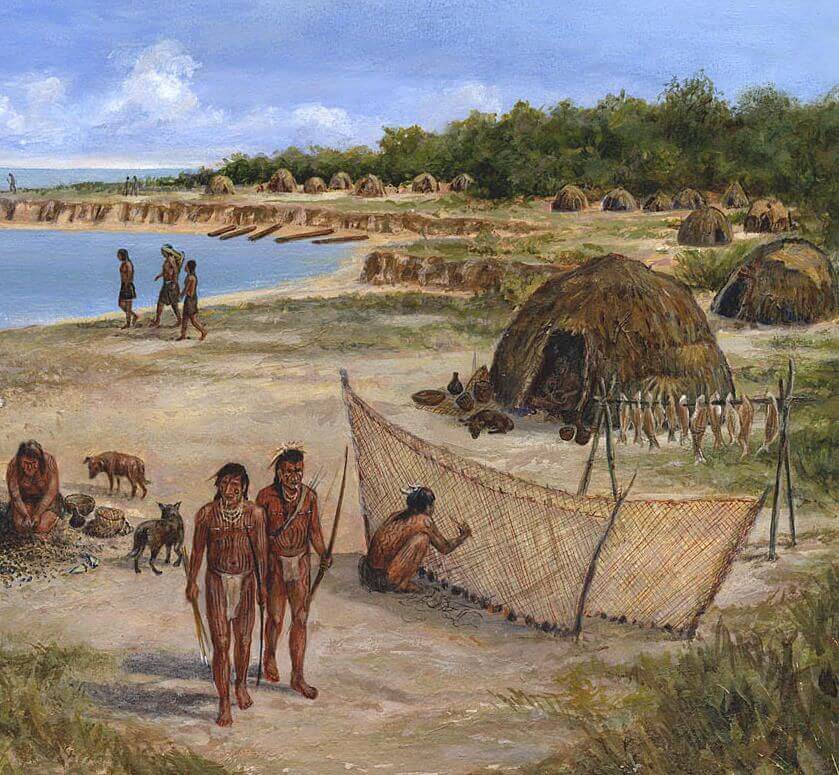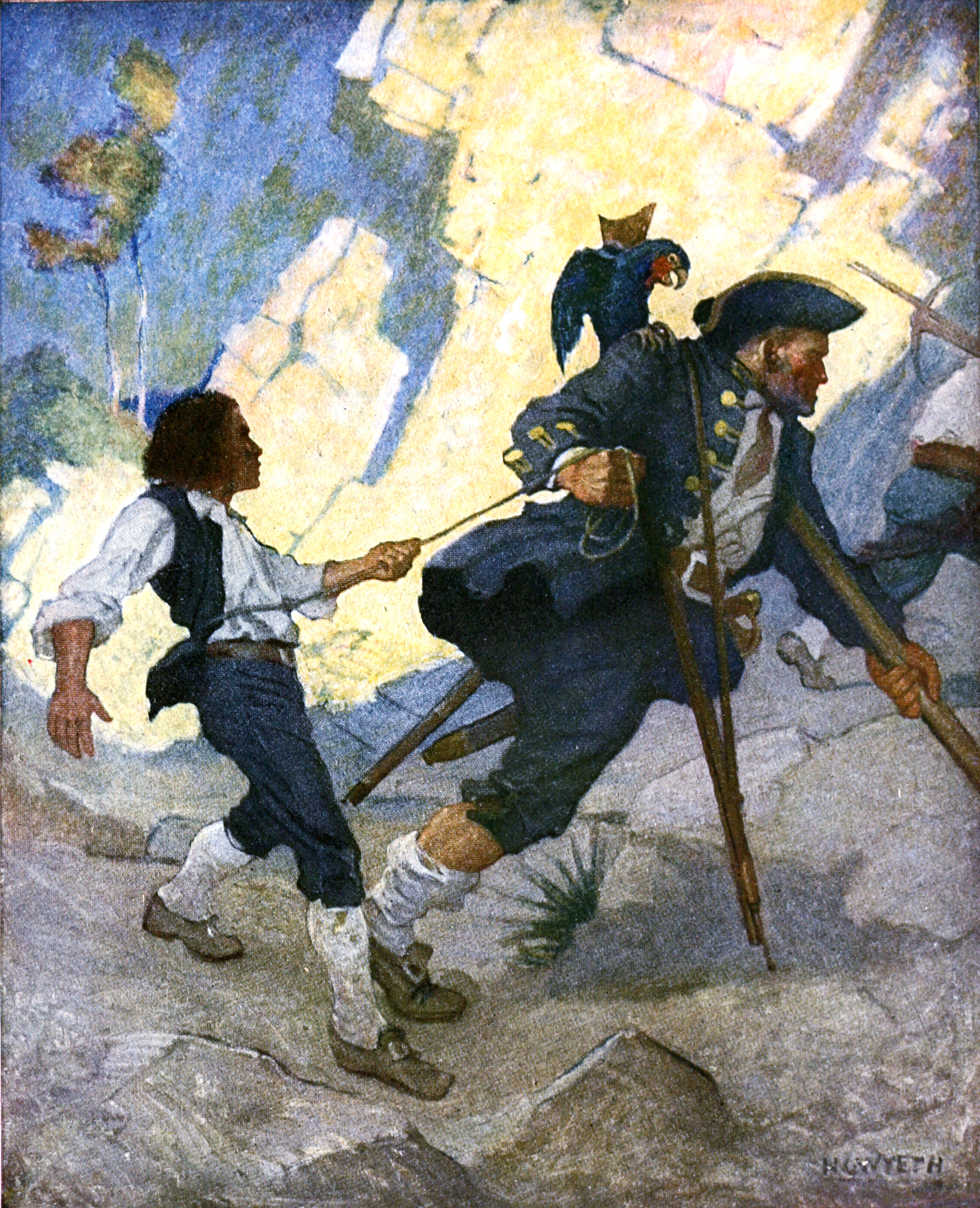When we consider how very badly things turned out for most Americans in terms of economics in 1819, it might be a good idea to go back to
President Monroe's first address to Congress and see the rosy forecast he gave and the ways in which he predicted there would be revenue to pay off the national debt.
In calling your attention to the internal concerns of our country the view which they exhibit is peculiarly gratifying. The payments which have been made into the Treasury show the very productive state of the public revenue. After satisfying the appropriations made by law for the support of the civil government and of the military and naval establishments, embracing suitable provision for fortifications and for the gradual increase of the Navy, paying the interest of the public debt, and extinguishing more than $18 million of the principal, within the present year, it is estimated that a balance of more than $6 million will remain in the Treasury on the first day of January applicable to the current service of the ensuing year.
The payments into the Treasury during the year 1818 on account of imposts and tonnage, resulting principally from duties which have accrued in the present year, may be fairly estimated at $20 million; the internal revenues at $2.5 million; the public lands at $1.5 million; bank dividends and incidental receipts at $500,000; making in the whole $24.5 million.
The annual permanent expenditure for the support of the civil government and of the Army and Navy, as now established by law, amounts to $11.8 million, and for the sinking fund to $10 million, making in the whole $21.8 million, leaving an annual excess of revenue beyond the expenditure of $2.7 million, exclusive of the balance estimated to be in the Treasury on the first day of January, 1818.
In the present state of the Treasury the whole of the Louisiana debt may be redeemed in the year 1819, after which, if the public debt continues as it now is, above par, there will be annually about $5 million of the sinking fund unexpended until the year 1825, when the loan of 1812 and the stock created by funding Treasury notes will be redeemable.
It is also estimated that the Mississippi stock will be discharged during the year 1819 from the proceeds of the public lands assigned to that object, after which the receipts from those lands will annually add to the public revenue the sum of $1.5 million, making the permanent annual revenue amount to $26 million, and leaving an annual excess of revenue after the year 1819 beyond the permanent authorized expenditure of more than $4 million.
The Louisiana Purchase and the debt that came with it were not President Monroe's fault. That he could not predict that cotton prices would go down as soon as Europe recovered from the wars it had been embroiled in, and the bad harvest of the year without a summer (1816), was also not his fault. Many of the problems he faced as a president were inherited from his predecessors. But to allow the banks to
renege and default on their obligations to depositors and to hold the Second Bank of the United States above the laws of the states for purposes of the application of ordinary contract law was in my opinion bad policy as well as unconstitutional.
In President Monroe's
Address from December of 1819, he spoke of the drop in the price of both goods and labor:
The great reduction in the price of the principal articles of domestic growth which has occurred during the present year, and the consequent fall in the price of labor, apparently so favorable to the success of domestic manufactures, have not shielded them against other causes adverse to their prosperity. The pecuniary embarrassments which have so deeply affected the commercial interests of the nation have been no less adverse to our manufacturing establishments in several sections of the Union.
So it seems that the price of unskilled labor, of staple goods and of manufactured goods all went down at the same time. If this was the case, you would think that people who had money would in fact be doing very well. Those of us with a positive net worth are supposed to thrive under these conditions of reduced prices. Let's remember who those people are. They are
not all rich. Some are widows and orphans and retired people who happen to have a nest egg and who hope to use that money to live on for the rest of their lives. Often they deposit such money in the bank. In a depression, they should do really well, because there is plenty of food and other goods to be had at a highly reduced price. This means retired people ought to be suddenly able to afford a higher standard of living than they otherwise could.
But guess what? The people who had money in the bank were not able to use the money to buy more things, because the banks would not release the money! This is an aspect of what happened during the Panic of 1819 and of every subsequent panic, including the one in 1929, that people don't tell you about. Depressions are not bad because the price of everything goes down. Lower prices are a good thing for the average person. Depressions are bad because the banks get to keep ordinary people's money, with the government's blessing.
But was President Monroe worried about people not being able to get to their savings? No, he was worried about the effect on businesses when the banks could not loan them money to take advantage in the fall in price of goods.
The great reduction of the currency which the banks have been constrained to make in order to continue specie payments, and the vitiated character of it where such reductions have not been attempted, instead of placing within the reach of these establishments the pecuniary aid necessary to avail themselves of the advantages resulting from the reduction in the prices of the raw materials and of labor, have compelled the banks to withdraw from them a portion of the capital heretofore advanced to them. That aid which has been refused by the banks has not been obtained from other sources, owing to the loss of individual confidence from the frequent failures which have recently occurred in some of our principal commercial cities.
The economy, even in the days of President Monroe, was seen as healthy when it was growing and unhealthy when it was not growing. But a non-interventionist policy ought in fact not to have cared whether there was growth. Debt fosters growth. The fact the Federal government was chronically in debt made it long for constant growth in the economy, and this in turn fostered a policy toward population growth and against hunter-gatherers.
Today, the same policies are still being applied, even while liberal-minded people give lip service to their concern about how the native American populations were expropriated of their lands. But President Monroe, in his first address to Congress, had no compunction about spelling it out. Hunter-gatherers had to stop hunting, because our mission is to expand the population to the max.
In this progress, which the rights of nature demand and nothing can prevent, marking a growth rapid and gigantic, it is our duty to make new efforts for the preservation, improvement, and civilization of the native inhabitants. The hunter state can exist only in the vast uncultivated desert. It yields to the more dense and compact form and greater force of civilized population; and of right it ought to yield, for the earth was given to mankind to support the greatest number of which it is capable, and no tribe or people have a right to withhold from the wants of others more than is necessary for their own support and comfort.
Wow! There in a nutshell is the idea that no one should be allowed to own land if that land could support more people if somebody else owned it! The "wants" of others trump your property rights!
 |
Photo compilation of Smoky Mountains by Reverie Hikes from Wikimedia Commons
"The earth was given to mankind to support the greatest number of which it is capable." James Monroe
|
The fiscal policy of wanting loans for large businesses but not having specie available to small depositors is the same as the land policy of enabling the high yield of denser populations and overriding the rights of smaller, less productive landholders to decide what lifestyle they prefer.
Notice that this is not a racist policy. At no time did the race of the native inhabitants come into it. President Monroe applied the same essentially socialist policy to everybody. His goal was constant expansion in order to fuel a growing economy in order to produce ever greater revenues to pay off massive debts. We have been on the same trajectory ever since.




